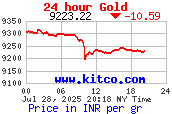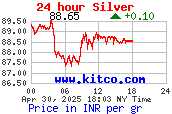 Analysts are now making investment case for Cigarette and FMCG Major - ITC Ltd. ITC's earnings growth has been remarkably stable despite tax increases and regulatory restrictions, reflecting its strong pricing power. ITC's CAGR was 18.4% over the past decade and average variance was only 3ppts. The new smoking ban appears to have had little effect and we do not expect it to have much impact in the medium term.
Analysts are now making investment case for Cigarette and FMCG Major - ITC Ltd. ITC's earnings growth has been remarkably stable despite tax increases and regulatory restrictions, reflecting its strong pricing power. ITC's CAGR was 18.4% over the past decade and average variance was only 3ppts. The new smoking ban appears to have had little effect and we do not expect it to have much impact in the medium term.
Volume growth of approximately 20% in filter cigarettes in 1HFY09 is encouraging and expect a 15% Cagr in the cigarette business Ebit over FY08-11.
Non-Cigarette Business:
While there has been concern over the need for a cash infusion into the non cigarette businesses, only 12% of post-tax cash generated by the cigarette division over the past seven years has been used for non-cigarette expansion. The paperboard unit is coming out of its capex cycle and the fast-moving consumer goods (FMCG) division's losses likely to shrink in 2HFY09. However, cyclical pressure will remain on the Hotels business.
According to CLSA here is the Sum of the Parts Valuation for ITC
Cigarettes - Rs 178 (19x PE, 20% discount to HUL)
FMCG - Rs 17
Agribusiness - Rs 3
Paperboard Rs 12
Hotels - Rs 12
Cash - Rs 6
Total Rs 225 is the Target price. ITC is expected to report an EPS of Rs 9.1 for FY09 and Rs 10.3 for FY10.











